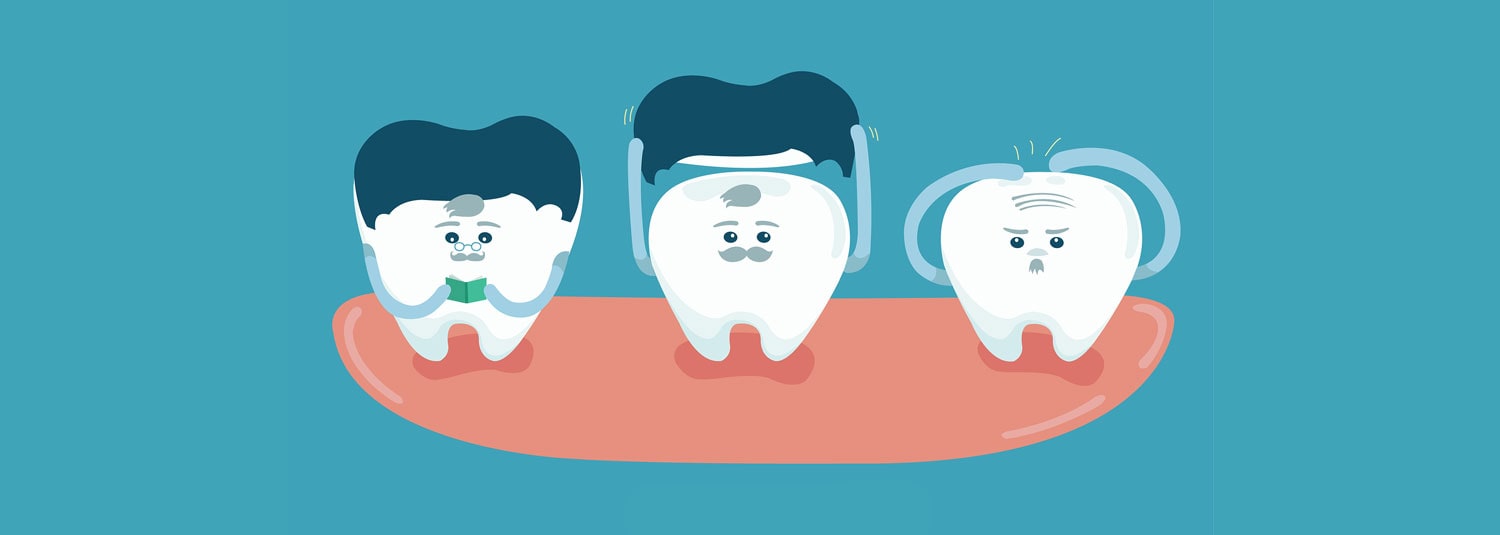Crowns & Bridges

Do you have damaged or weakened teeth? If yes, you could protect them with fixed prosthetics like crowns and bridges. While they are similar to dentures in appearance, crowns and bridges are permanent and cannot be removed as needed. Crowns and bridges are generally cemented onto existing implants or teeth and can only be removed by a dentist.
What Are Crowns And How Do They Work?
Crowns are fixed prosthetics that cover the entirety of the damaged tooth. Also referred to as a cap, a crown is used to strengthen the weakened tooth and improve its alignment, shape, and appearance. Crowns are often placed on titanium implants to provide teeth functions.
- Made from ceramic or porcelain, crowns are commonly designed to match your teeth’ natural color. Often, crowns can also be made with gold, acrylic, and metal alloys.
- In comparison to traditional porcelain crowns, metal alloys are stronger and more durable, making them suitable for back teeth.
Why Should You Get A Crown?
After a thorough examination of your past and present dental health, your dentist may recommend crowns for several reasons. These reasons include:
- Attaching Bridges
- Restoring Fractured Teeth
- Protecting Weak Teeth From Fractures
- Replacing Large Fillings
- Covering Dental Implants
- Covering Teeth With Prior Root Canal Procedures
- Covering Poorly Shaped / Discolored Teeth
If you are currently facing one or more of these situations, talk to our office about a crown today. Depending on your budget, you can choose from natural-looking porcelain crowns or durable metal alloy options.
Bridges: What They Are and How They Work
If you have more than one tooth missing, our dentists may recommend a fixed bridge to rectify any dental shortcomings and remove gaps between missing teeth. Commonly used to replace a group of teeth at once, bridges span over the free space between teeth. Gaps left between teeth can cause imbalance and lead the teeth to shift or rotate, causing problems. Additionally, this imbalance can also lead to joint disorders and gum disease.
Bridges are generally implanted to the natural teeth and cover the empty spaces to prevent surrounding teeth from moving. Depending on the function, costs, and aesthetic considerations, you can choose from several materials for bridges. For a natural look, ceramic or porcelain bridges are considered to be the most ideal.
General Care for Crowns and Bridges
Crowns and bridges generally last a lifetime, but they can fall out or become loose. Visit the dentist immediately for a quick fix. Oral hygiene is essential for new crowns and bridges. If the teeth holding the bridge are weakened by disease, the bridge itself will not remain supported. Keep your teeth and gums healthy by using effective fluoride toothpaste regularly and floss daily. Avoid chewing hard or sticky foods when you are wearing a new crown or bridge, as it affects the foundation’s integrity and strength.
For more information on crown and bridge options, price quotes and surgeries, contact Hinsdale Dental today!